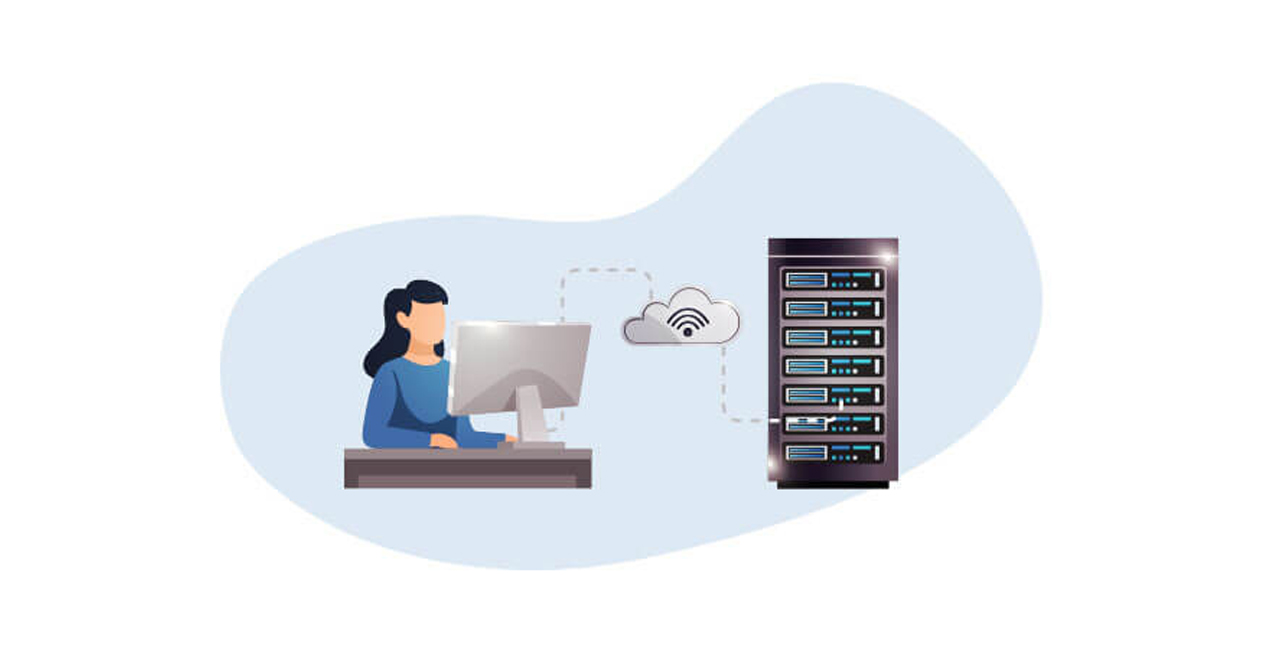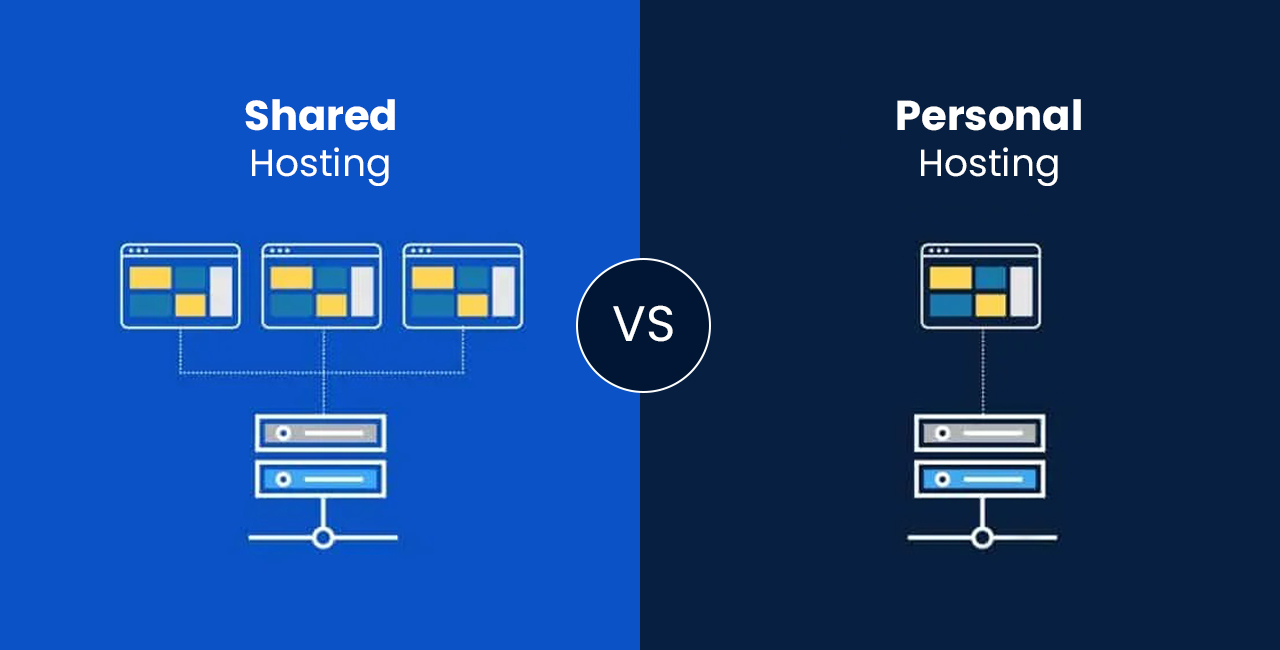Choosing the right hosting option is a critical decision when it comes to establishing and maintaining a successful website. Two common choices that website owners often encounter are shared hosting and personal hosting. Shared hosting involves sharing server resources with other websites, while personal hosting provides dedicated resources for your website alone.
In this blog post, we will delve into the world of shared hosting and personal hosting, exploring their features, advantages, and limitations. By the end, you will have a clear understanding of the differences between these hosting options and be better equipped to make an informed decision about which one is the right fit for your website.
When it comes to shared hosting, the cost-effectiveness and simplicity of this option make it a popular choice for many website owners. With shared hosting, multiple websites are hosted on a single server, and resources such as CPU, RAM, and disk space are shared among them. This shared environment allows hosting providers to offer affordable hosting plans.
On the other hand, personal hosting provides a more exclusive and dedicated hosting experience. With personal hosting, your website has access to its own set of resources, providing greater control and performance. While personal hosting often comes at a higher price point, it offers advantages such as improved speed, security, and scalability. As we explore shared hosting and personal hosting in detail, we will evaluate the key factors that can help you determine which option is best suited for your website’s unique needs and goals.
Understanding Shared Hosting
Shared hosting is a popular choice for individuals and small businesses looking to establish an online presence without breaking the bank. In shared hosting, multiple websites reside on the same server, sharing resources such as CPU, RAM, and storage space. This setup allows hosting providers to offer affordable hosting plans, making it an attractive option for those on a tight budget. Shared hosting also provides a user-friendly experience, as the hosting provider manages server maintenance and technical aspects, leaving you free to focus on your website’s content and design.
However, it’s important to consider the limitations of shared hosting. Since resources are shared among multiple websites, performance can be affected if other sites on the server experience high traffic or resource-intensive activities. Additionally, limited customization options and security vulnerabilities may be inherent in a shared hosting environment. Therefore, if your website has unique needs, high traffic expectations, or requires robust security measures, it’s worth exploring alternative hosting options.
Exploring Personal Hosting

For website owners who prioritize performance, control, and scalability, personal hosting offers a compelling solution. With personal hosting, your website resides on a dedicated server or a virtual private server (VPS) that provides exclusive resources solely for your site. This exclusive environment allows for greater control over server settings, enhanced customization options, and the ability to handle higher levels of traffic.
Personal hosting also offers improved website loading speeds, as resources are not shared with other sites. In terms of security, personal hosting provides a higher level of protection, as you have greater control over security measures and can implement customized security protocols. While personal hosting comes at a higher cost compared to shared hosting, the benefits of increased performance, customization, and security make it a worthwhile investment for businesses and websites with specific requirements or expectations of growth.
Comparing Shared Hosting and Personal Hosting

When it comes to comparing shared hosting and personal hosting, there are several key factors to consider in order to make an informed decision that aligns with your website’s needs. One crucial aspect is performance and resource allocation. In shared hosting, since resources are shared among multiple websites, there is a possibility of experiencing slower loading times or performance issues during peak traffic periods.
On the other hand, personal hosting provides dedicated resources, ensuring optimal performance and faster loading speeds even during high traffic periods. If your website requires consistent and reliable performance, personal hosting may be the preferred option.
Security and privacy considerations are also important when choosing between shared hosting and personal hosting. In a shared hosting environment, the security measures implemented by the hosting provider extend to all the websites on the server. While reputable hosting providers take security seriously, vulnerabilities on one website can potentially affect others.
Personal hosting offers a higher level of security as you have greater control over implementing specific security measures tailored to your website’s needs. This level of control allows you to implement robust security protocols, monitor and manage potential threats more effectively, and maintain the privacy of sensitive data. If data security and privacy are critical for your website, personal hosting provides a distinct advantage over shared hosting.
Choosing the Right Hosting Option for Your Website
Choosing the right hosting option for your website requires careful consideration of various factors. One key aspect is assessing your website’s needs and requirements. Evaluate the nature of your website, its content, and expected traffic levels. If you have a small personal blog or a static website with limited traffic, shared hosting may be a cost-effective and suitable choice. However, if you anticipate significant growth, have resource-intensive applications or e-commerce functionality, or require a high level of customization, personal hosting is likely the better option.
Another factor to consider is the scalability and future growth potential of your website. Shared hosting plans often have limitations on resources, which can restrict your website’s scalability. If you anticipate your website growing in terms of traffic, content, or functionality, personal hosting offers the flexibility to easily upgrade resources and accommodate increasing demands.
By carefully evaluating your website’s needs, growth projections, and customization requirements, you can make an informed decision when choosing between shared hosting and personal hosting. Consider the advantages and limitations of each option and select the hosting solution that aligns with your website’s goals and ensures a seamless online experience for your visitors.
Real-World Examples and Case Studies
To further illustrate the differences between shared hosting and personal hosting, let’s explore some real-world examples and case studies of websites. One example is a small personal blog that receives moderate traffic and has minimal resource requirements. In this case, shared hosting would be a suitable and cost-effective choice. The website can benefit from the shared resources without experiencing any significant performance issues or scalability concerns. On the other hand, a growing e-commerce website with high traffic and complex functionality might opt for personal hosting. By having dedicated resources, the website can handle the increased traffic, ensure faster loading times, and offer a secure and reliable shopping experience for customers.
Another example is a business website that requires customizations and advanced security measures. Personal hosting would be the preferred option in this case, as it provides greater control over server settings and the ability to implement specific security protocols tailored to the business’s needs. This ensures the protection of sensitive data and mitigates potential vulnerabilities. By examining these real-world examples, you can gain insights into how different websites have made hosting choices based on their unique requirements, enabling you to make an informed decision for your own website.
Conclusion
When it comes to choosing between shared hosting and personal hosting for your website, it’s essential to carefully assess your specific needs, priorities, and budget. Shared hosting can be a cost-effective option for small websites with limited traffic, while personal hosting provides dedicated resources, enhanced performance, and greater control for websites with higher demands. Consider factors such as scalability, security, customization options, and future growth potential to make an informed decision.
As you navigate through the process of selecting the right hosting option, it’s crucial to remember that the success of your website relies on not only the hosting but also the design and functionality. That’s where Atcommerce comes in.
With our user-friendly interface, customizable templates, and powerful features, Atcommerce empowers you to create a stunning and efficient online store. Whether you choose shared hosting or personal hosting, pairing it with Atcommerce will ensure that you have all the tools necessary to build a successful online presence.
